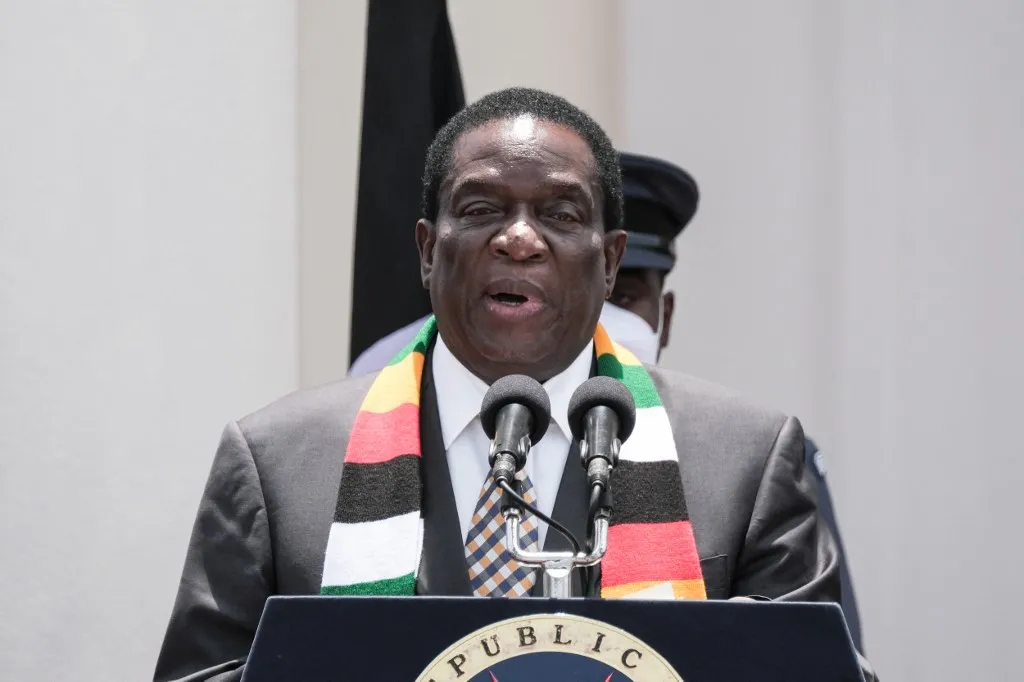In September Zimbabwe’s President Emmerson Mnangagwa promulgated a law that made profound changes to the governance of the country’s sovereign wealth fund, whose name has been changed to the Mutapa Investment Fund. But, while Mnangagwa argues that the government is making changes to “give a new lease of life to previously under-performing state-owned enterprises”, the move has caused widespread disquiet.
The law, which Mnangagwa enacted using special Presidential Powers measures, strengthens his ability to appoint senior staff and board members. Using the same special powers, the president has also transferred ownership of 20 state entities in the mining, transport, oil, railways, communications, power and agricultural sectors to the Fund.
Furthermore, he has removed the Fund from the provisions of the country’s Public Procurement and Disposal of Public Assets Act. This releases it from lengthy procurement procedures in the buying and selling of assets but also removes any need for transparency in making such transactions.
Speaking at a meeting of business people in the tourist resort town of Victoria Falls on 2 October, the permanent secretary of the Ministry of Finance, George Guvamatanga, clarified that it is only the Fund itself as an investor that is exempted from the procurement laws and not the entities under its management.
He said the government has exempted the Fund because it will have to operate in highly competitive international markets against private equity funds and similar businesses and it will therefore need to be quick, efficient and cost-effective.
But the changes still raise many questions.
Fears of nepotism
Farai Mutambanengwe, an economist, criticises the way Mnangagwa made the changes by decree.
“Presidential Powers are also supposed to be to do with emergencies, whereas the issues pertaining to the Mutapa Investment Fund are not really an emergency. It is supposed to be debated, pass through parliament and the relevant enactments done if they are necessary,” he tells African Business.
He says this new law violates issues of transparency and accountability as well as regulations of public entities. “It is concerning that the president has pretty much overridden Parliament as an oversight body in doing this,” Mutambanengwe says.
Critics point out that even though the president is supposed to consult with the minister of finance on appointments, the new law makes it easy for him to appoint his children, business allies, relatives and friends to the board, or for the board to covertly sell assets in a way that profits well-connected individuals.
The Fund is now also able to transfer money in and out of Zimbabwe without regard to exchange control regulations, raising the fear, according to Veritas, a website that monitors the country’s law-making, that the Fund “could become a conduit through which the country’s wealth is externalised”.
“The president’s critics fear it will share the same fate as the Fundo Soberano de Angola (FSDEA) which was caught up in the endemic corruption of the Dos Santos regime,” comments Global SWF, an organisation that tracks the world’s sovereign investors, referring to the billions of dollars that were stolen from Angola’s sovereign fund.
And Mnangagwa’s record in power does little to allay the fears of his critics.
Mnangagwa’s record
Since he came to power through a military coup in November 2017, Mnangagwa’s rule has been marred by human rights violations and allegations of corruption and cronyism.
He controversially won a second term in Zimbabwe’s 23 August presidential election, when the Zimbabwe Electoral Commission ruled him winner with 52.6% of the vote against Nelson Chamisa, leader of the main opposition party, Citizens Coalition for Change (CCC), with 44% of the vote.
But the result, along with that of the accompanying parliamentary and municipal elections was accompanied by allegations of voter intimidation by state security agents, massive rigging and voter suppression through ballot paper delays in opposition strongholds such as the capital Harare, the second largest city of Bulawayo and some parts of Manicaland Province.
Even an observer report by the Southern African Development Community (SADC) – a body that has often rallied in support of the Zanu-PF government – noted that Zimbabwe’s elections did not meet the regional bloc’s principles and standards; nor did they comply with the country’s own electoral laws.
Chamisa and the CCC rejected the result and demanded a fresh election, without success.
Mnangagwa, who was inaugurated at a ceremony in Harare attended by few SADC leaders in early September, has stacked the cabinet with his children, business allies, friends and relatives. His son Kudakwashe was appointed as deputy to finance minister Mthuli Ncube, while his nephew Tongai was appointed deputy minister of tourism.
Will the Fund be viable?
Zimbabwe established its sovereign wealth fund in 2014 during the rule of President Robert Mugabe.
Sovereign wealth funds are normally financed from the money that comes from government reserves resulting from budget and trade surpluses, often from the export of natural resources, and are commonly set up to benefit future generations. Notable funds include those of Kuwait, established in 1953, and Norway, established in 1990, with assets of $803bn and $1.4 trillion respectively.
It was expected that the Sovereign Wealth Fund of Zimbabwe would be financed through proceeds of the government’s shareholding in mining assets. But Zimbabwe’s economy has been struggling since Mnangagwa took over from Mugabe in 2017, making it difficult to generate any surplus.
Zimbabweans have been grappling with shortages of basics such as electricity, currency crises, foreign currency shortages, rising costs of living and high inflation while salaries have remained stagnant.
“If managed well, the Mutapa Investment Fund will have a developmental impact on the broader economy,” economist and researcher Tinashe Kaduwo tells African Business.
“If the government strengthens institutions such as the Zimbabwe Anti-Corruption Commission (ZACC) and the judiciary system, the Mutapa Investment Fund could be a game-changer. I believe that if sound corporate governance and ethics are adhered to, the fund may be both viable and sustainable in the present and future.”
But he adds that given the history of mismanagement of parastatals by Mnangagwa’s regime, the Fund is likely to be bedevilled by the same challenges of mismanagement due to incompetence and massive corruption.
“We have a chequered history when it comes to managing funds. A good example is how the National Social Security Authority (NSSA) is being managed, and reported misappropriations of funds and looting. That can also happen with the Mutapa Investment Fund.”
The government says that it wants to create a world-class sovereign investment fund, but with constitutional crisis, political crisis and illegitimacy issues hanging over Mnangagwa’s regime as a result of the August 2023 elections, turning Zimbabwe’s economy around is still going to be a mammoth task.
Additional research by Charles Dietz.
Want to continue reading? Subscribe today.
You've read all your free articles for this month! Subscribe now to enjoy full access to our content.
Digital Monthly
£8.00 / month
Receive full unlimited access to our articles, opinions, podcasts and more.
Digital Yearly
£70.00 / year
Our best value offer - save £26 and gain access to all of our digital content for an entire year!

 Sign in with Google
Sign in with Google 



